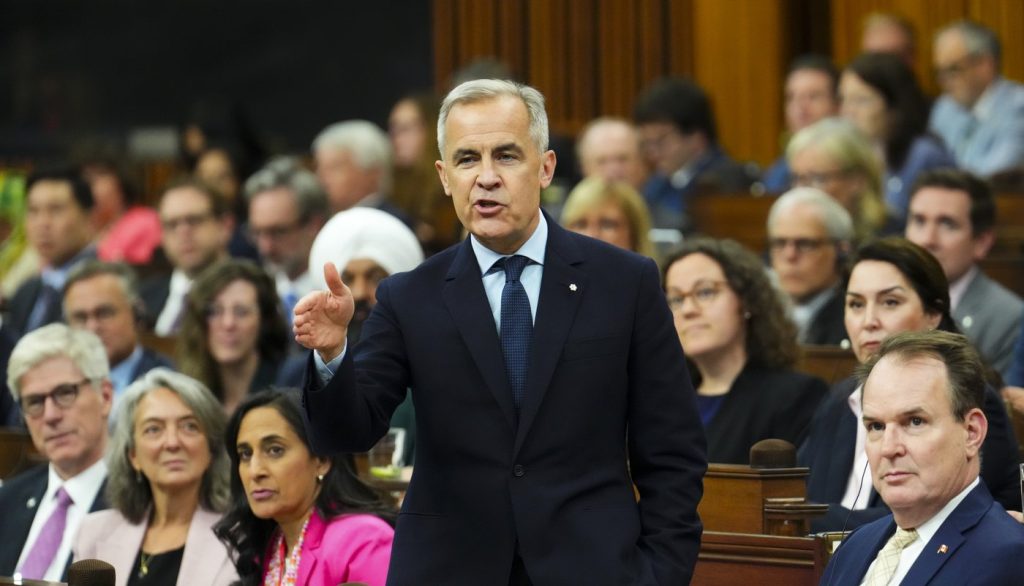Opposition grows as Ottawa tries to slam through Bill C-5 this week

Posted June 18, 2025 8:23 am.
There is a chorus of voices speaking out against the Canadian government’s desire to push through a controversial piece of legislation as soon as possible.
Bill C-5 would give the governing Liberal Party the ability to fast-track major infrastructure and energy projects. It also aligns with Ottawa’s previous promise to eliminate interprovincial trade barriers by Canada Day.
The Conservatives voted in favour of the bill earlier this week, while the NDP, Bloc Québécois, and Greens all voted against it. It’s currently on track to clear the House of Commons by week’s end.
The bill is also similar to legislation in Ontario and Bill 15 in B.C., which has been highly criticized and gives the provincial government the power to expedite big infrastructure projects without the required input from some underrepresented groups.
“[It’s] a bill that fails to uphold their constitutional obligations,” said NDP MP Leah Gazan, a member of the Wood Mountain Lakota Nation, on Tuesday.
“The constitutional obligations to obtain free prior and informed consent. There’s no reason to fast-track a bill in the name of national interest. In the name of national interest that will be decided upon in the absence of Indigenous Peoples,” Gazan explained.
The federal Liberals claim that Canada needs this legislation, given the struggling economy and the ongoing trade and tariff war.
“Trampling on parliamentary democracy does nothing for unemployed workers. Bulldozing through the democratic process does nothing to build our economy. [Bill] C-5 and the programming motion together represent a new height in contempt for Parliament itself and in my years observing closely Parliament, I’ve never seen a time when a prime minister’s office or a government grabs onto itself new powers that it is relinquished them later,” said Green Party Leader Elizabeth May on Tuesday in Ottawa.
University of the Fraser Valley political scientist Hamish Telford understands Prime Minister Mark Carney’s logic, but isn’t buying it. Telford also warns of serious consequences down the road.
“It may come back to haunt them in the long run. If there are flaws in the legislation and if civil society groups, particularly Indigenous groups, take issue with it, it could get hung up in the courts later if they don’t take the time to get it right now,” he explained.
There is a short window to debate the bill, and the motion states the House can’t adjourn on Friday until the bill goes to the Senate.
“This is complicated legislation. I think it would stand to benefit from more parliamentary debate, more committee hearings, as well as external consultation, and/or government could extend its session a little bit to accommodate this,” Telford said.
“But they seem determined to push it through. I think in this situation, they could take a little bit more time, take a bit of their holiday time in July to have public hearings on this through the committee and refine the legislation. Let groups have their say, rather than feeling excluded,” explains Telford.
He points to a B.C. example where a big project was slowed down because groups pushed back against the government.
“That was the whole problem with the Trans Mountain pipeline project. It got approved by the government, and then there were court challenges both on the environmental side and the Indigenous side, and that greatly delayed the project because the framework for approving it wasn’t right to begin with.”
The Liberals have coined the bill the “One Canadian Economy bill,” and Telford accuses them of trying to take advantage of the instability facing the country right now.
“The devil is in the details here, and it’s really important to get the framework right so you can iron out these details properly later. We can create the illusion of protecting ourselves by jamming things through, and if it’s a house of cards, it all just falls down later, then we’re not really protecting ourselves,” Telford said.
“It’s important we take the right steps to defend ourselves, even if it takes a little bit more time.”
MPs are expected to adjourn as of June 20, and the Senate is expected to wrap things up for the summer by June 27. They are back to work in September, and any parliamentary business in either chamber would only take place if there’s an emergency recall.








